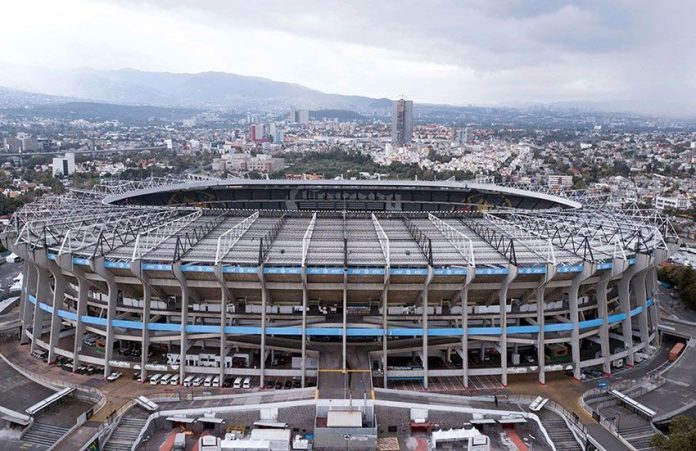The National Football League (NFL) has announced that a match between the Los Angeles Rams and the Kansas City Chiefs will not be played in Mexico City Monday due to the poor condition of the playing surface at Estadio Azteca.
“The decision is based on the determination . . . that the playing field at Estadio Azteca does not meet NFL standards for playability and consistency and will not meet those standards by next Monday,” the league said in a statement yesterday.
The highly-anticipated match has been transferred to the Rams’ temporary home stadium, the Los Angeles Coliseum.
The decision to move the match from Mexico City came after NFL and Rams officials as well as independent experts inspected the stadium’s playing surface and determined that it posed a risk to players’ safety.
New hybrid grass was laid at the stadium in the middle of July but since then 23 soccer matches have been played on it and the stadium has also hosted three concerts and president-elect López Obrador’s final campaign rally.
Estadio Azteca authorities said in a news release that “the long and unusual rainy season, as well as the calendar of events with third parties . . . might be a factor in the grass being in far from optimal conditions.”
Mark Waller, an NFL executive vice-president, said in a statement that “we have worked extensively with our partners at Estadio Azteca for months in preparation for this game,” adding that “until very recently, we had no major concerns.”
He also cited “a difficult rainy season and a heavy multi-event calendar of events at the stadium” as reasons for “significant damage to the field that presents unnecessary risks to player safety and makes it unsuitable to host an NFL game.”
The NFL and Estadio Azteca said that they will offer details in the coming days about refunds for people with tickets.
Losing the hosting rights to next Monday’s showdown will mean missing out an economic spillover worth approximately US $52 million.
Analyses conducted by the accounting firm Ernst & Young based on NFL matches played in Mexico City in 2016 and 2017 showed a combined spillover of US $104 million.
Thousands of football fans from the United States and different parts of Mexico traveled to Mexico City to watch the previous matches, both of which were played at the cavernous facility, located in the south of the capital.
Many remained several days or longer in Mexico, spending money on things such as accommodation, restaurants and entertainment.
Tourism marketing expert Rodrigo Cobo said the losses associated with the game’s cancellation in Mexico will extend beyond the tourism sector.
“There’s going to be a range of contractual consequences; we’ll soon see the extent of the impact. The NFL contract with Mexico also includes a lot of advertising and publicity agreements and there will be a lot of cancellations,” he said.
“It’s terrible that as a country we were not able to solve a problem of this magnitude, it has an impact on the country, on the entry of foreign currency and the international reputation of Mexico . . .”
One contract affected is that reached between the federally-funded Mexican Tourism Board and the NFL.
The former agreed to pay the latter US $72.5 million to host five matches between 2016 and 2020.
The payments are made via annual installments to the NFL of US $14.5 million.
The tourism board had already transferred US $10.8 million for this year’s match but according to the contract between the two entities, the money, less costs incurred, must be reimbursed if the NFL cancels the game.
However, for American football fans in Mexico there is likely no adequate compensation for missing out on the experience of watching an NFL match at home.
Source: El Universal (sp), El Economista (sp), Milenio (sp)
